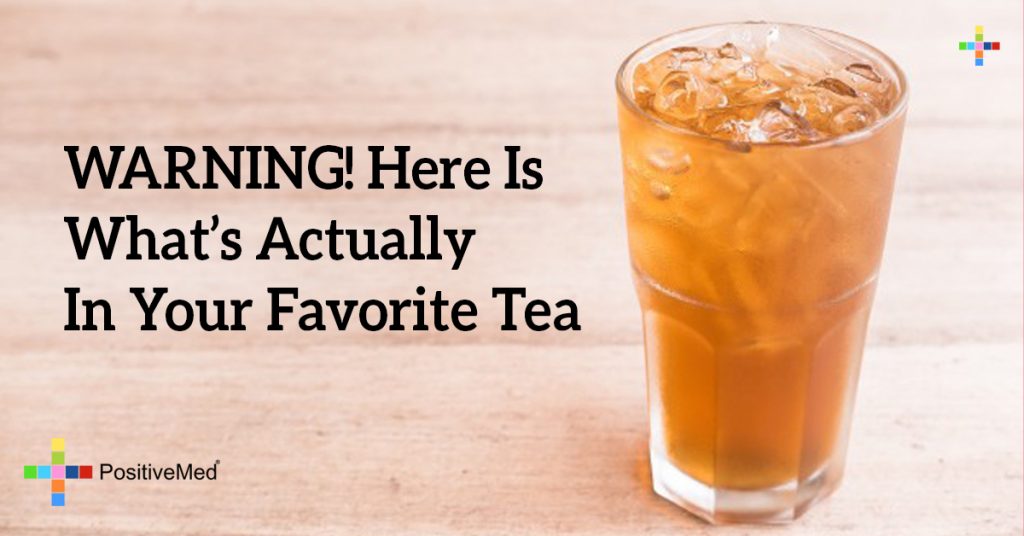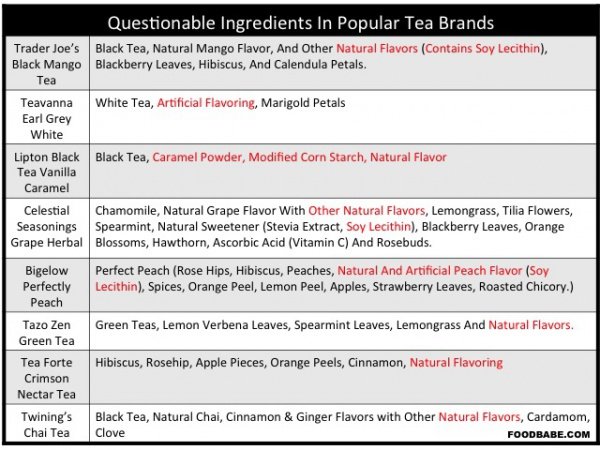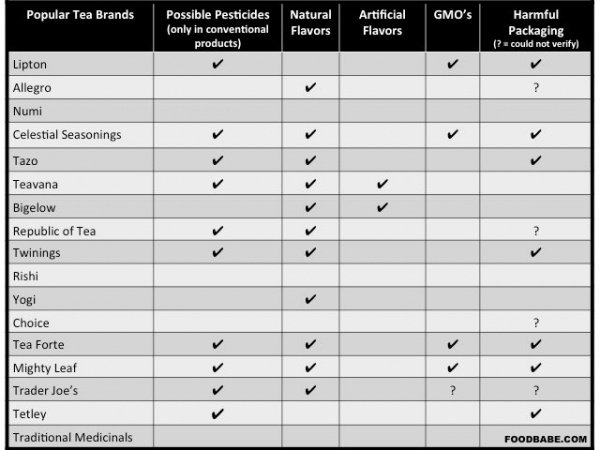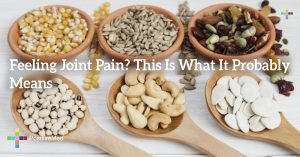
WARNING! Here Is What’s Actually In Your Favorite Tea
Genetically modified organisms, pesticides, toxins, and carcinogens. These are all buzzwords these days. You probably see these phrases in articles and other media all the time. But do you understand what these things actually mean? And do you know where they lurk? Like almost all commercial food products these days, tea is another culprit of these harmful substances. Chances are, it’s not something you’ve ever even thought about before. It’s just tea, right? How harmful could it possibly be? Think again.
Have you ever really looked at the ingredients list on a box of tea from your favorite brand? Chances are, somewhere near the end of the list you’ll see the phrases “natural flavors”, “modified corn starch” or “soy lecithin”. Modified corn starch and soy lecithin are ingredients that are often genetically modified, or have been processed with pesticides.

But what does “natural flavors” mean? It can mean practically anything. Any ingredient that comes from nature can be heavily processed and treated with harmful chemicals. There is no way to know what the “natural flavors” in your tea really are. Many tea companies add flavoring substances to their tea to cover up the inferior taste and quality of a tea that’s been grown with pesticides.
RELATED ARTICLE: What Tea You Should Be Drinking Based on Your Blood Type!
Wait, pesticides? You read that right. Pesticides, carcinogens (substances that cause cancer), and other harmful chemicals have been found in many popular tea brands. A study found that 91% of tea from Celestial Seasonings, a well-known brand, had pesticide residue that exceeded the legal limit. Their “Wellness” line of tea was found to contain traces of propagate, which is a pesticide used to kill mites. Teavana is another popular brand you may know. 100% of Teavana tea was found to contain pesticides; in some cases, up to 23 different pesticides in the same tea. Among these pesticides was endosulphan, which is banned in 147 countries due to its harmful effects on fertility and fetal development. Endosulfan also greatly increases the risk of autism when consumed by a pregnant woman. Commercially available teas simply aren’t what they seem.
It’s not just the tea that may contain harmful substances. Tea bags may leach out harmful chemicals, and you would never realize it because the tea bag isn’t even included on the ingredients list. Some tea companies nowadays have opted to use teabags made out of a form of plastic. The plastic that they use is derived from corn, which is very likely genetically modified. This plastic, when steeped in boiling water, releases phthalates and other chemicals. Phthalates disrupt normal hormone levels and may cause birth defects. Even regular old paper teabags may be treated with chemicals such as epichlorohydrin, which is a pesticide and a carcinogen that has been found to cause suppressed immune function, infertility, and cancer in animals.
RELATED ARTICLE: 7 Unexpected Facts About Green Tea That Will Change The Way You Look At It
Just like with almost any food product these days, teas may contain substances you might not know about. However, this doesn’t mean you need to swear off tea. Just be sure to find a tea that contains no pesticides or similar substances. Do your research! Loose leaf teas are a good bet, as they don’t have the teabag part which could contain harmful chemicals. Numi, Traditional Medicinals, and Rishi Tea are some brands that are certified non-GMO and organic.

Always check the ingredients list for that suspicious “natural flavors” item. If you can’t figure out whether a tea is safe for you or not, contact the manufacturer to ask about how their tea is processed and treated. Also, most restaurant tea that you may be served is tea from a popular brand, such as Lipton, Celestial Seasonings, or similar. These popular brands are more likely than smaller companies to contain pesticides. You can stay on the safe side by not ordering tea at restaurants or coffee shops, and brewing your own at home instead.
Healthy, safe tea is another aspect of healthy living that needs attention. Many, if not most people enjoy a cup of tea at least every now and again. But don’t let your health be compromised by hidden pesticides and carcinogens! By finding an all-natural, safe tea brand that you like, you can avoid the risk of a compromised immune system and possible cancer.





